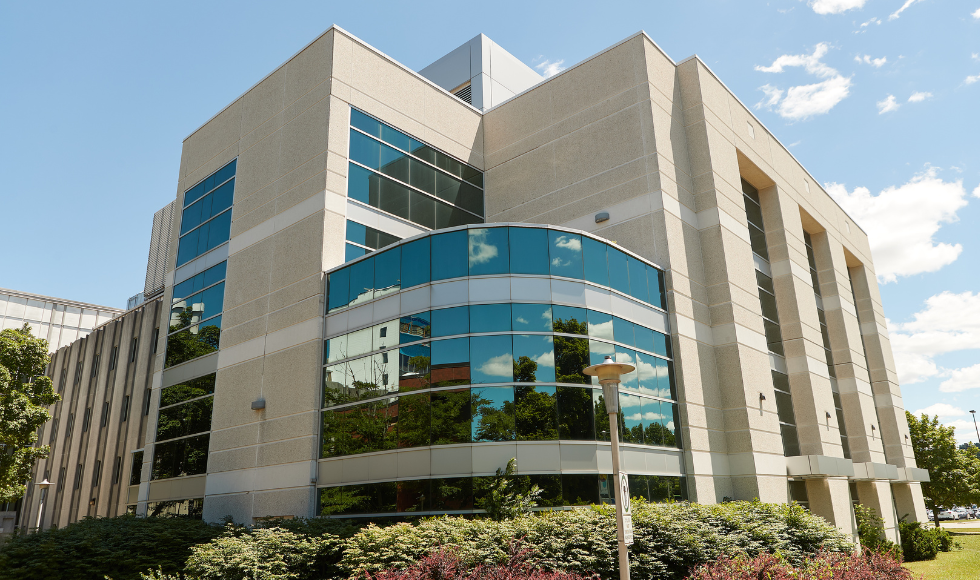McMaster researchers receive nearly $11 million in NSERC Discovery funding

The funding from NSERC's largest and longest-standing program will support research in computing and software, materials science, psychology and neuroscience, chemistry, biology and much more.
BY Daniella Fiorentino
June 28, 2022
The federal government is investing in 51 McMaster research projects as part of the Natural Sciences and Engineering Research Council of Canada’s (NSERC) 2022 Discovery Research Program.
McMaster researchers will receive $10.9 million to fund projects in computing and software, materials science, psychology and neuroscience, chemistry, biology and much more.
The Discovery program is NSERC’s largest and longest-standing program, designed to support Canada’s best researchers in making breakthrough discoveries for the economy, society, and the environment.
This year, McMaster researchers are receiving awards in four categories: Discovery Grants, Discovery Launch Supplements, Discovery Horizons Grants and Research Tools and Instruments Grants.
The funding was announced last week by Minister of Innovation, Science and Industry François-Philippe Champagne and Treasury Board President Mona Fortier.
Across Canada, researchers will receive over $430 million in funding, with $6.6 million in Discovery Launch Supplements going to 529 early-career researchers in the first year of their Discovery Grants to help them launch their careers.
Fourteen McMaster researchers will receive this supplement:
- Jonathan Stokes, Biochemistry & Biomedical Sciences| Elucidation of the genetic determinants of antibiotic tolerance
- Sonia Hassini, Civil Engineering | Sustainable Stormwater Management Approach: Optimal Implementation of Low Impact Development Systems
- Shahab Asoodeh, Computing and Software | Algorithmic Watchdog for Differential Privacy: From Theory to Practice
- Lingyang Chu, Computing and Software | Interpretations and Actions towards Trustworthy Graph Neural Networks
- Denise Geiskkovitch, Computing and Software | Robot Design for Young Children
- Claudio Menghi, Computing and Software | Automated Support for CyberPhysical Systems Design: from Theory to Practice
- Yingying Wang, Computing and Software | Modeling Diverse, Personalized and Expressive Animations for Virtual Characters through Motion Capture, Synthesis and Perception
- Kirsten Bell, Kinesiology | Extending the capabilities of ultrasound for skeletal muscle assessment
- Kyla Sask, Materials Science and Engineering | Engineered surfaces for the control of protein and cell interactions and improved biomedical materials
- Pratheepa Jeganathan, Mathematics and Statistics | Integrative Approaches for Spatial and MultiOmics data
- Alberto Caminero Fernández, Medicine | Allergen processing by human gastrointestinal microbiota
- J. Patrick Clancy, Physics and Astronomy | Exploring Novel Quantum Materials with Neutrons and Xrays
- Jonathan Cannon, Psychology, Neuroscience & Behaviour | Exploring and Modeling Entrainment to Rhythm in the Motor System
- Elli Papangelakis, School of Geography and Earth Sciences | Measuring geomorphic processes at the watershedscale to support urban river management
In addition, McMaster researchers will receive $1,949,000 in one-time, one-year extensions to fund their existing Discovery research grants as a part of an ongoing response by NSERC to support researchers impacted by the COVID-19 pandemic.
“Discovery is the foundation of all advancements. Through this major investment in some of Canada’s most promising and innovative researchers we are supporting scientists and students to become global leaders in their field. By helping to expand the frontiers of science, we are investing in a better society and a brighter future for Canadians,” said Champagne.
Karen Mossman, McMaster’s vice-president of research, says the awards will help researchers advance knowledge in their field, achieve their long-term research goals, and train the next generation of leaders in science and engineering.
“This funding will have a meaningful impact both on our researchers and on global society at large. McMaster’s research community is known for its outstanding research output, and I know this investment will help our researchers continue to make important discoveries.”


